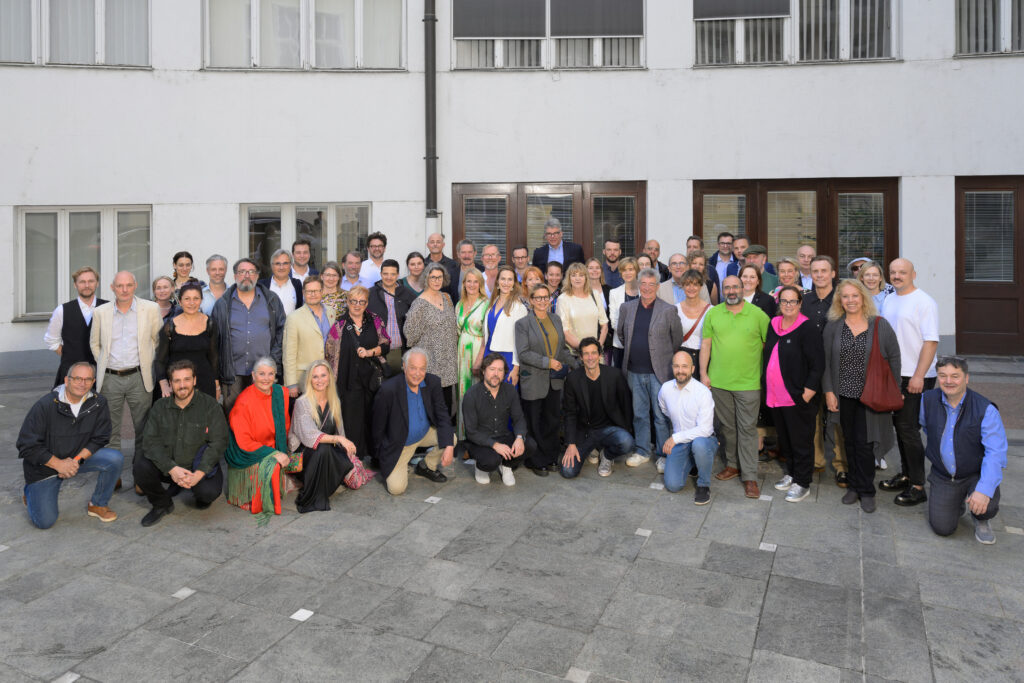Through a successful application for funding to the European Commission, the European social partners (including FIA on the trade union side) in both the Live Performance and Audiovisual sectors have been able to build on their previous fact-finding and assessment work regarding skills development and labour market intelligence in their sectors and move towards the launch of a European Skills Council.
The European Sector Skills Council for the Audiovisual and Live Performance Sectors started its activities in November 2014. It aims to contribute to the development of EU-level intelligence and initiatives on employment and skills in the sectors. During its first phase of activities (18 months), it will operate in an informal way and always look at producing outputs of direct interest for the sector. It aims first and foremost to involve national sectoral skills bodies across the EU, in which the national social partners are often involved as key stakeholders. The meetings of the council will aim to gather representatives from national sector skills councils or equivalent bodies in 10 EU countries (Belgium, Czech Republic, Denmark, Estonia, Finland, France, the Netherlands, Romania, Spain and the United Kingdom), as well as possible representatives from Austria, Germany and Sweden or other additional EU countries, where relevant.
Three thematic reports will be prepared in the course of the project.
Report 1: ‘Employment situation including forecasts and trends’ – To be discussed and adopted at Council meeting 1
Available data will be presented if possible by sub-sectors, occupations and countries (regions), highlighting gaps in information. Both the demand and supply of skills will be presented as well as mismatches between the educational offer and output and the labour market. The report will also highlight if relevant bottleneck occupations and instances of excess supply of skills. The report will provide a specific focus on the impact of the economic and financial crisis on the audiovisual and live performance labour markets, and in particular on how the crisis impacts on the demand of skills and the educational offer.
Report 2: ‘Qualitative evolution of skills in the sector, focusing on the evolution of occupations’ – To be discussed and adopted at Council meeting 2 (Prague, September 2015)
The report will include information about emerging jobs, a review of factors driving changes in skills used and a synthesis of available scenarios. A specific focus will be given to the technological changes affecting the audiovisual and live performance sectors, in particular as regards the new multi-media landscape with new ways of reaching audiences and how this impacts on the evolution of skills. The report will draw on existing available information, such as employer’s and trade union surveys and foresight exercises and highlight gaps in information.
Report 3: ‘Innovative tools, national and/or regional strategies, local initiatives, methods put in place at national level to monitor skills needs in the sector’ – To be discussed and adopted at Council meeting 3 (Madrid, December 2015)
The report will analyse the main challenges in the implementation and coordination of national and regional mechanisms to adapt supply, active skills use and in using labour market intelligence to close the skills gaps.
European Skills Council meetings and capacity-building workshops
There will be in total 3 European Skills Council meetings (1 full day each) scheduled over this 18 month period. Each meeting will address one specific theme:
1) Tallinn, Estonia (29 April 2015)- focusing on employment situation in the sectors incl. forecast and trends
2) Prague, Czech Republic (September 2015)- focusing on qualitative evolution of skills/occupations, incl. emerging jobs, possible scenarios
3) Madrid, Spain (December 2015) – focusing on innovative tools, national and regional strategies to monitor skills needs and address skills mismatch
European Skills Council meetings will debate and deepen the data and good practices identified in draft thematic reports prepared ahead of the meetings. Each Skills Council meeting will also formulate policy recommendations, which will be further debated during the final European Conference. Each meeting will include a specific session on the long-term development of the European Skills Council.
The project also foresees two 1-day capacity building workshops, following the European Skills Council meetings in Prague and Madrid. These workshops will aim at increasing the capacity of skills organisations and institutions – in particular from Central, Eastern and the South of Europe – where fully-fledged national skills councils are not yet developed. The workshops will allow for an in-depth regional peer learning and the exchange of best practice to ensure a long-term full participation of as many EU countries as possible in the European Sector Skills Council.
More Information about the European Skills Council:
You will be able to find out more on a specifically established website will provide members of the European Skills Council and other interested parties with useful data and links related to employment and skills trends in the two sectors. The website will come online shortly.
The website will also publish the working documents of the European Skills Council. A newsletter of the main outcomes of the meetings will also be sent out after each council meeting to all interested parties. Leaflets with simple and straightforward information about the European Skills Council and its activities will be developed as promotion material
Read the Council Vision Document for further detail on the aims and objectives of the European Skills Council.





